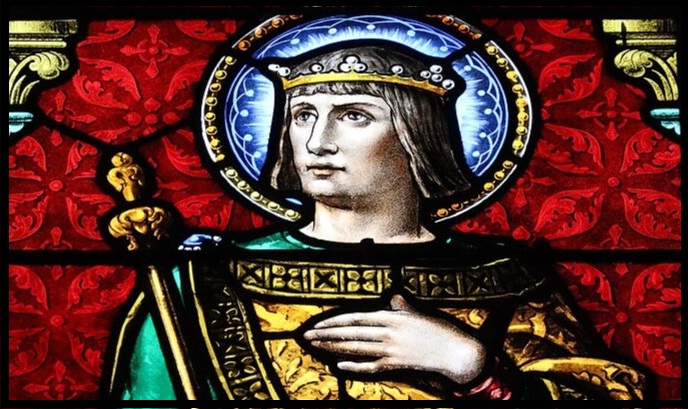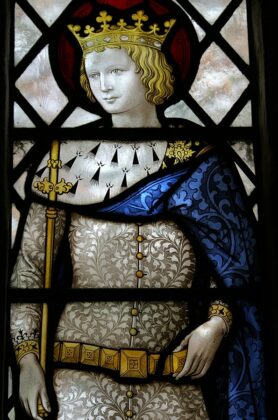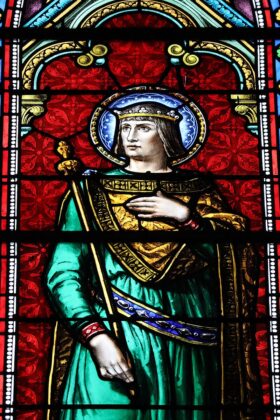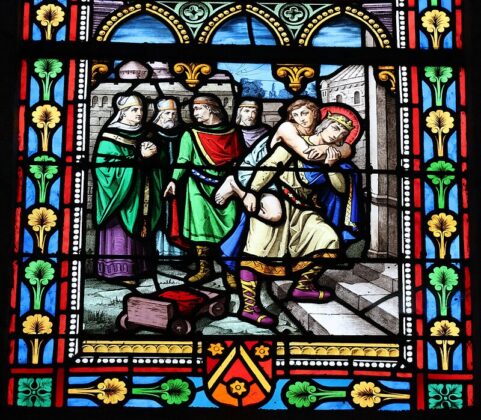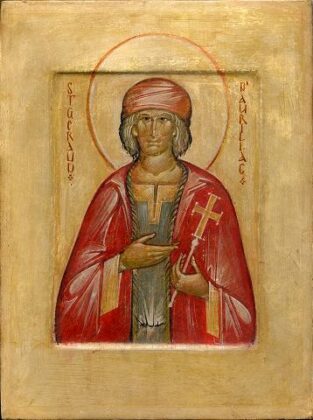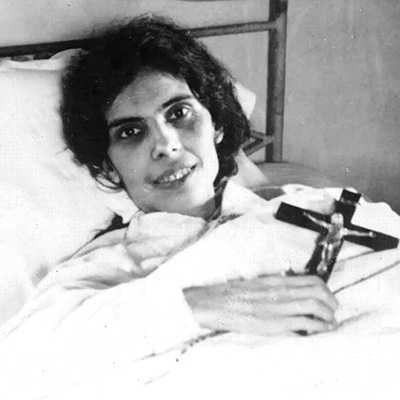Monday of the 28th Week in Ordinary Time
Mass Readings
First Reading – Rom 1:1-7
Paul, a slave of Christ Jesus, called to be an Apostle and set apart for the Gospel of God, which he promised previously through his prophets in the holy Scriptures, the Gospel about his Son, descended from David according to the flesh, but established as Son of God in power according to the Spirit of holiness through resurrection from the dead, Jesus Christ our Lord. Through him we have received the grace of apostleship, to bring about the obedience of faith, for the sake of his name, among all the Gentiles, among whom are you also, who are called to belong to Jesus Christ; to all the beloved of God in Rome, called to be holy. Grace to you and peace from God our Father and the Lord Jesus Christ.
Responsorial Psalm – Ps 98:1bcde, 2-3ab, 3cd-4 (R.14)
R. The Lord has made known his salvation.
Sing to the LORD a new song,
for he has done wondrous deeds;
His right hand has won victory for him,
his holy arm.R.
The LORD has made his salvation known:
in the sight of the nations he has revealed his justice.
He has remembered his kindness and his faithfulness
toward the house of Israel. R.
All the ends of the earth have seen
the salvation by our God.
Sing joyfully to the LORD, all you lands;
break into song; sing praise. R.
Gospel – Lk 11:29-32
While still more people gathered in the crowd, Jesus said to them, “This generation is an evil generation; it seeks a sign, but no sign will be given it, except the sign of Jonah. Just as Jonah became a sign to the Ninevites, so will the Son of Man be to this generation. At the judgment the queen of the south will rise with the men of this generation and she will condemn them, because she came from the ends of the earth to hear the wisdom of Solomon, and there is something greater than Solomon here. At the judgment the men of Nineveh will arise with this generation and condemn it, because at the preaching of Jonah they repented, and there is something greater than Jonah here.”
Featured Saints
In England, Optional Memorial of: St. Edward the Confessor, king († 1066). (Sunday takes precedence) An able ruler, he maintained relative peace in a turbulent era. He promoted the building of Churches throughout his kingdom, and his eminent piety earned for him the title “Confessor” (Celebrated January 5 in the General Calendar.)
St. Quelidona, virgin (†1152). She lived for fifty-two years as a hermit in the Simbruini Mountains, Italy, in a regime of utmost austerity.
St.Theophilus of Antioch, bishop, († second century)
St. Venantius of Luni, bishop (†fourth century). Friend of Pope St. Gregory the Great, he took excellent care of the clergy and monks of his diocese in Luni, Italy.
St. Romulus, bishop (†fifth century). An ardent pastor, he died during a pastoral visit to the rural villages of his diocese of Genoa, Italy.
St. Comgan, abbot (†eighth century). An Irish prince who embraced religious life in Scotland. He erected and governed the monastery in Lochalsh.
St. Gerald Count of Aurillac (†909). While fulfilling his public obligations, he privately lived as a monk, and was constantly a model of virtue for other French nobles.
Blessed Magdalen Panattieri, virgem (†1503). In a small chapel of Trinus, Italy, this Dominican tertiary catechized and counselled even priests who came to speak with her.
Blessed Alexandrina Maria da Costa (†1955). Injured while fleeing from an attempt against her chastity at the age of 14, she became paraplegic and permanently bedridden, offering herself as a victim for the conversion of sinners.
Image gallery


